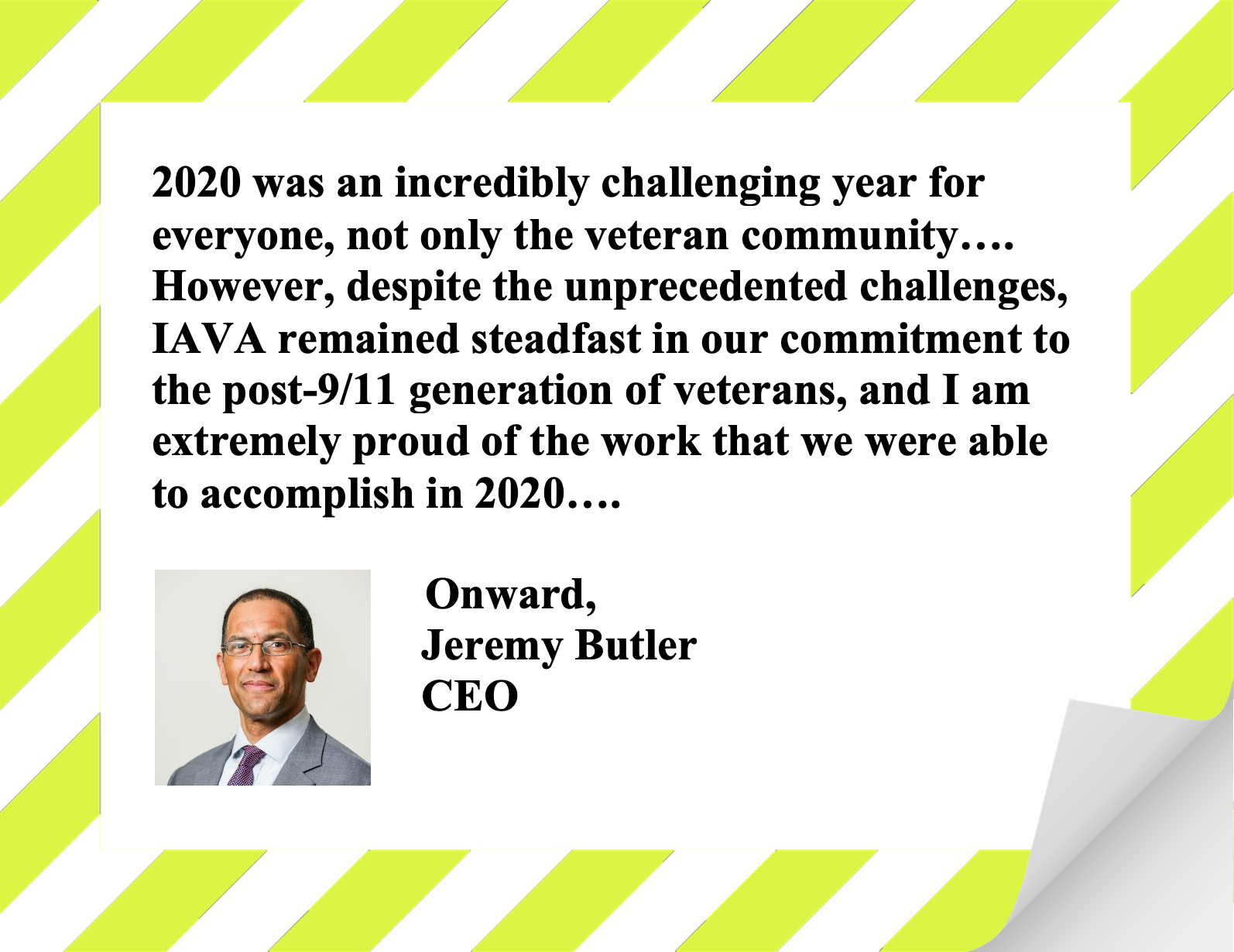IAVA's Policy Agenda for the 117th Congress
Improve the Justice System to Support Veterans and Service Members
Improve the Justice System to Support Veterans and Service Members
Veteran Treatment Courts (VTCs) are now a proven way to offer alternatives to traditional criminal sentences for veterans with legal trouble characteristic of a mental health injury rather than criminality. IAVA has long been a strong supporter of these effective, innovative courts, and with more than 40 states now having established VTCs, they are an accepted part of the justice system in most states. This provides veterans with a second chance, but also lowers recidivism rates and saves taxpayers money. As more is understood about these programs, state and local governments should now seek to adopt best practices and expand the use of Veterans Courts beyond the 34 states that currently have them. While the first Veteran Court was established nine years ago in Buffalo, New York, today it is estimated that more than 350 exist.
Beyond the success of VTCs, other avenues to ensure justice-involved veterans are cared for are of interest to the veteran community. Ensuring VA access for those in the criminal justice system, successfully reintegrating veterans once released from prisons, and reducing recidivism rates among veterans is critical.
Additionally, justice applies to all citizens, including those in uniform. While the military justice system is complex and stands alone from the civilian courts, ensuring that service men and women are not left in unfair situations because of the military justice system’s intricacies is an important factor in the 21st century, all-volunteer, force.
IAVA's Recommendations
- Require the Department of Justice (DoJ) to compare quarterly data from the Universal Crime Report with DoD to determine the number of, and reasons for, incarcerated veterans
- Assist local municipalities in establishing Veterans Courts by providing grants that include basic stipends to support the travel and expenses of veterans volunteering as peer support counselors
- Provide grants to states to establish Veterans Courts from DoJ or VA to better support VTCs
- Empower judges to order treatment, instead of prison, for veterans suffering from combat‐related mental health injuries
- Ensure standardized care from VA for incarcerated veterans, and expand treatment options, allowing VA to coordinate with local municipalities and nonprofits to develop counseling, recovery and peer-support services for veterans in the criminal justice system
- Train probation officers in the benefits available to veterans to aid in helping formerly incarcerated veterans transition back into their communities
- Ensure incarcerated veterans have access to and are aware of the services and support available to them through the VA and state and federal resources. Mandate those with upcoming release dates, within 2 years, are given transition books provided by re-entry coordinators
- Adjust homeless veteran housing regulations so that justice-involved veterans eligible for parole without a permanent address can apply and be eligible for VA Homelessness Programs before their release date to allow for a smooth transition
- Ensure justice-involved veterans and their families are aware of the VA’s reporting requirement impacting VA benefits and ease the process for reporting incarceration and requesting apportionment of benefits for dependents
- Adjust Feres Doctrine under DoD so that medical malpractice cases due to reasons outside of direct military involvement are eligible for federal tort claims and family settlements
IAVA's Policy Priorities
Select a topic from the list below to learn about IAVA’s policy recommendations for the 117th Congress.

